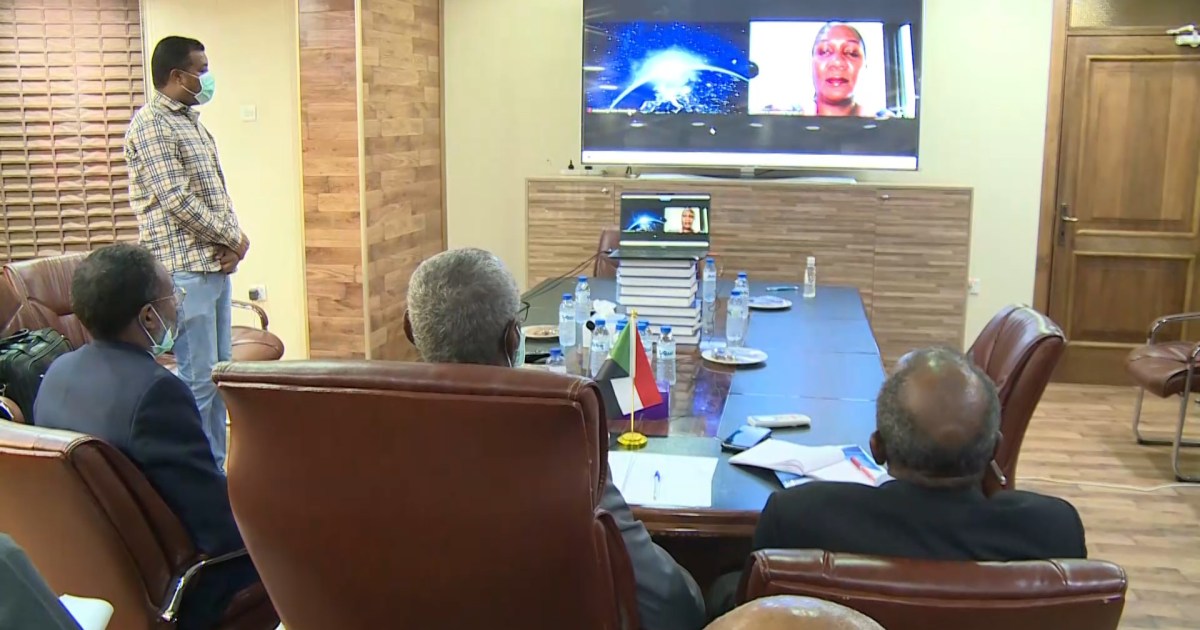Ethiopian Minister of Irrigation Seleci Baqli said that the tripartite negotiations on the Renaissance Dam, which resumed on Friday, are still continuing with the participation of experts from the African Union, America and Europe, while a Sudanese politician accused Ethiopia of starting a secret work that led to water shortages in Sudan starting in early July.
The Ethiopian Minister of Irrigation has made clear that negotiations are continuing with additional observers from the African Union as identified by Cyril Ramafuza, President of South Africa, President of the current session of the Union. He added that the negotiations will continue daily for two weeks.
The negotiations resumed on Friday to discuss the agenda presented by the President of South Africa. Informed sources told the island that "the negotiations - which are taking place away from the media - have engaged in a long negotiating marathon on contentious technical issues."
The sources added that they do not expect the parties today to reach a specific agreement that could be announced in the coming hours.
It is noteworthy that the statements of the parties had confirmed that they had completed in the previous rounds about 90% of negotiations issues, and stated that the differences were confined to issues related to technical aspects, most notably the rules for filling the dam.
A week ago, Ethiopia, Egypt and Sudan agreed during a mini-African summit via video to postpone the start of filling the reservoir of the Renaissance Dam Dam that Addis Ababa is building on the Blue Nile.
The summit was held at the invitation of South African President Cyril Ramafuza, and the Egyptian President Abdel Fattah Al-Sisi, Ethiopian Prime Minister Abi Ahmed, Sudanese Prime Minister Abdullah Hamdouk, Kenyan President Uhuru Kenyatta, President of the Democratic Republic of the Congo Felix Tshisekedi, Mali Ibrahim Abubakr Keita and Chairman of the African Union Commission Musa participated in it. My jaws.
Fill the dam secretly
As for the leader of the Forces for Freedom and Change and spokesman for the Sudanese Baath Party, Mohamed Wadaa, he said that Ethiopia had begun filling the dam secretly.
The Sudanese politician added that all evidence confirms that Ethiopia has started to start filling the dam, which caused a shortage of water coming into Sudan in July, and exacerbated the electricity crisis due to the lack of water generation, he said.
In an interview with Al-Jazeera, Wadaa expected the matter to get worse, and accused Ethiopia of seeking to store and control water, despite violating all the water agreements.
He pointed out that Ethiopia "now occupies about two million acres of Sudanese territory," and described it as "colonial power."
It is noteworthy that Ethiopia started construction of the Renaissance Dam in 2011, and upon its completion it will become the largest hydroelectric dam in Africa, but it raises sharp differences with both Sudan and Egypt, which share the waters of the Nile.
Although the three countries entered into negotiations on the Renaissance Dam, they have not yet been able to reach an agreement, particularly on the rules for filling and operating the dam's reservoir.
Amid Ethiopia's intention to start filling the dam, members of the UN Security Council earlier this week expressed support for the efforts of the African Union to resolve the crisis.

